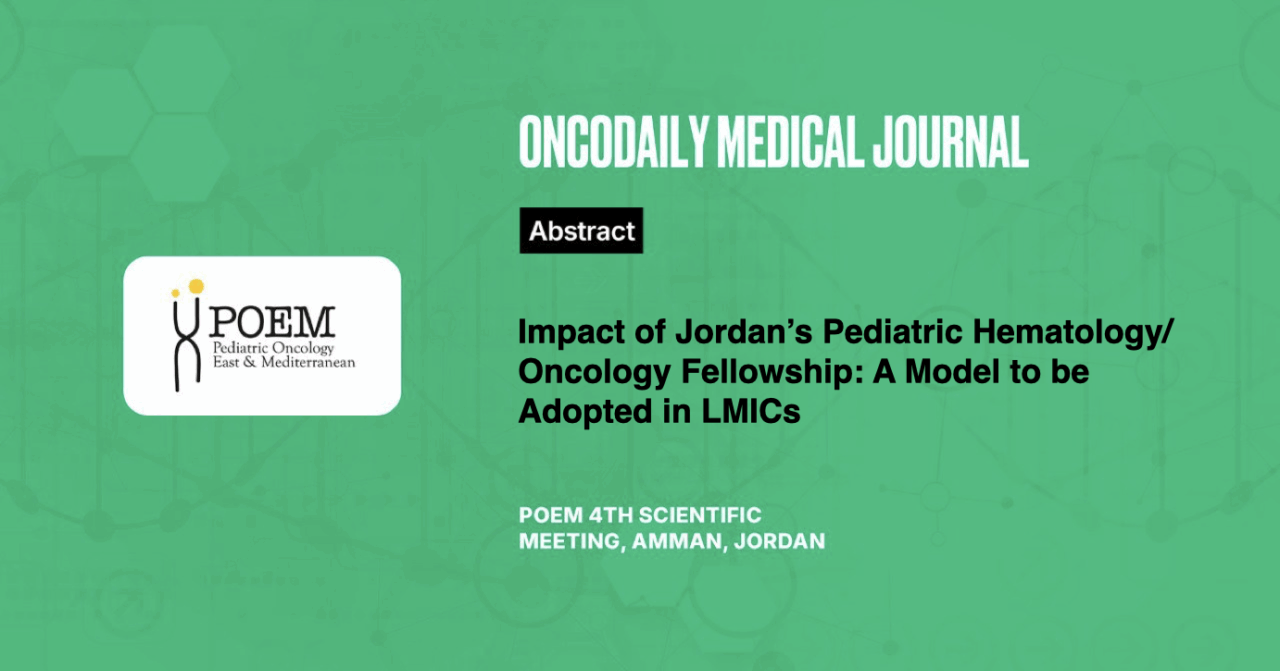Impact of Jordan’s Pediatric Hematology/Oncology Fellowship: A Model to be Adopted in LMICs
Abstract
Introduction: In low-middle-income countries (LMICs), specialized pediatric hematology-oncology (PHO) training is scarce due to financial, visa, and family-related barriers. Many pediatricians who receive international training remain in Western-countries, causing a brain drain in their countries. For this, KHCC established a PHO-fellowship program to train local and regional pediatricians from countries with limited resources.
Methodology: Established in 2003, this three-year fellowship program is the first in the region. It offers clinical and academic training in pediatric hematologic/oncologic disorders, with rotations in BMT, palliative care, and other services. Fellows participate in multidisciplinary meetings and research projects. The program is accredited by the Jordanian (2003) and Arab Boards (2022). Non-Jordanian fellows are supported by the Pediatric Oncology East & Mediterranean (POEM) group or by their local governments.
Results: Over 20 years, 45-fellows joined the program, with 17 (38%) from countries like Iraq, Palestine, Gaza, Sudan, Syria, and Libya. Thirty-six fellows graduated, nine are still in training. In the first 10 years, 33% were non-Jordanian, rising to 40% in the following decade. To date, 19 fellows (52%) are board-certified, majority being Jordanian (73%). While many Jordanian graduates secured positions at KHCC, others maintain contact for consultations, and some continue to attend KHCC’s multidisciplinary meetings and educational activities. Non-Jordanian graduates have returned to establish oncology services in their countries, few have relocated due to difficult conditions, such as political instability or lower salaries.
Conclusion: Establishing a PHO-fellowship in LMICs is feasible and impactful, providing high-quality training and filling a critical gap in regional healthcare. This model can be replicated in other LMICs. KHCC is committed to expanding fellowship to develop regional leaders and strengthen healthcare systems across the region.





